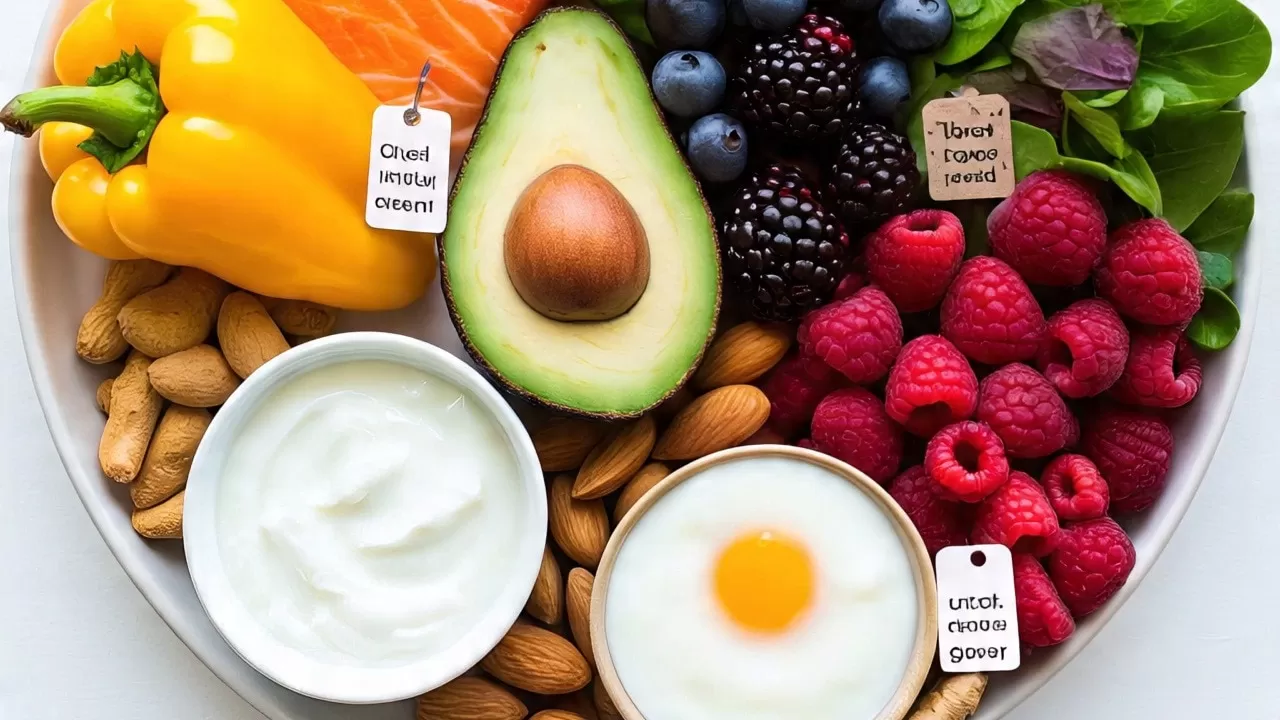The Instagram Nutrition Trap: Why Viral Diet Hacks Are Failing You
Share- Nishadil
- September 06, 2025
- 0 Comments
- 4 minutes read
- 49 Views

Debunking Viral Nutrition Myths: What Instagram Gets Wrong About Your Diet
Dive into the truth behind popular Instagram nutrition trends and understand why many viral diet hacks are not only ineffective but potentially harmful. Learn to distinguish fact from fiction in the world of online health advice.
In the vast, visual landscape of Instagram, a new breed of nutrition gurus has emerged, selling dreams of instant health, rapid weight loss, and "detoxed" bodies. With beautifully curated feeds and captivating stories, these influencers often peddle viral diet hacks that, despite their popularity, frequently contradict scientific understanding and can even put your health at risk.
It’s time to pull back the curtain and expose the most pervasive nutrition myths Instagram has sold us, and why these trendy fixes are often nothing more than a recipe for disappointment.
One of the most enduring myths is the demonization of carbohydrates. Carbs, often labeled as the enemy responsible for weight gain, are in fact a primary source of energy for your body and brain.
The nuance lost in viral posts is the difference between refined carbs (like white bread and sugary snacks) and complex carbs (found in whole grains, fruits, and vegetables). Cutting out an entire food group without understanding its role or seeking proper guidance can lead to nutrient deficiencies and an unhealthy relationship with food.
It’s not about ditching carbs, but choosing the right ones.
Then there are the omnipresent detox teas and cleanses. Promising to flush out toxins and reset your system, these products are often marketed with unrealistic claims. The truth? Your liver and kidneys are incredibly efficient, performing a natural detox process 24/7.
Most "detox" teas are little more than laxatives and diuretics, leading to temporary water weight loss, not actual fat loss, and can even be dangerous, causing dehydration and electrolyte imbalances. Save your money and trust your body's built-in cleansing system.
The idea of cutting out entire food groups (beyond medical necessity) is another red flag.
Whether it's dairy, gluten (for those without celiac disease or genuine sensitivity), or all fats, such restrictive approaches can make healthy eating feel unsustainable and unenjoyable. A truly healthy diet is about variety and balance, ensuring you get a wide spectrum of nutrients. Unnecessary elimination diets can lead to nutritional gaps and an obsessive focus on food rules rather than nourishing your body.
Intermittent fasting, while a a legitimate tool for some under professional guidance, has been sensationalized on social media as a magic bullet for everyone.
While it can be effective for weight management and metabolic health, its benefits are highly individual and depend heavily on what you eat during your eating windows. It's not a license to overeat unhealthy foods for hours, nor is it suitable for everyone, especially those with certain medical conditions or a history of disordered eating.
For many, it simply doesn't align with lifestyle or dietary needs.
The allure of supplements replacing real food is another dangerous narrative. Influencers often push various pills, powders, and potions as shortcuts to health, implying they can compensate for a poor diet. While specific supplements can be beneficial in addressing deficiencies, they are meant to supplement, not substitute, a balanced diet rich in whole foods.
No amount of trendy greens powder can fully replace the fiber, antioxidants, and synergistic nutrients found in a plate of fresh vegetables.
Finally, let's address the myth that certain foods burn fat. From grapefruit to celery juice, various foods are touted for their alleged fat-burning properties.
The reality is that no single food can magically melt away fat. Weight loss and fat reduction are complex processes influenced by overall calorie balance, metabolism, and consistent healthy habits. While some foods have thermogenic properties (meaning they slightly increase calorie expenditure during digestion), their impact on fat loss is negligible in isolation.
Focus on a wholesome diet and regular activity instead of chasing mythical fat burners.
Navigating the world of nutrition can be confusing, especially when social media floods us with conflicting advice. The key takeaway from debunking these myths is simple: prioritize evidence-based information over fleeting trends.
A balanced diet, adequate hydration, regular physical activity, and sufficient sleep form the bedrock of true health. When in doubt, consult with qualified nutrition professionals who can offer personalized, science-backed guidance tailored to your unique needs, helping you achieve sustainable well-being far beyond the fleeting scroll of Instagram.
.Disclaimer: This article was generated in part using artificial intelligence and may contain errors or omissions. The content is provided for informational purposes only and does not constitute professional advice. We makes no representations or warranties regarding its accuracy, completeness, or reliability. Readers are advised to verify the information independently before relying on







